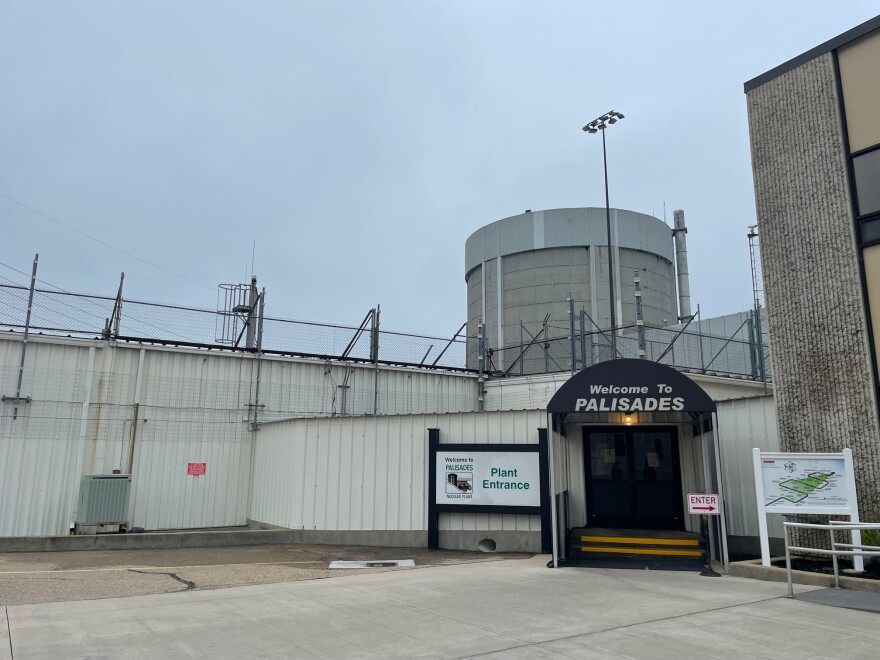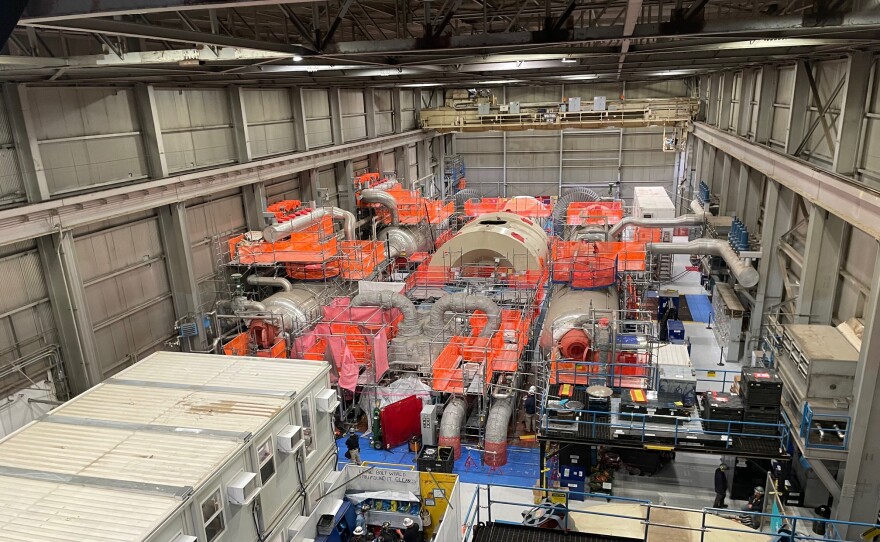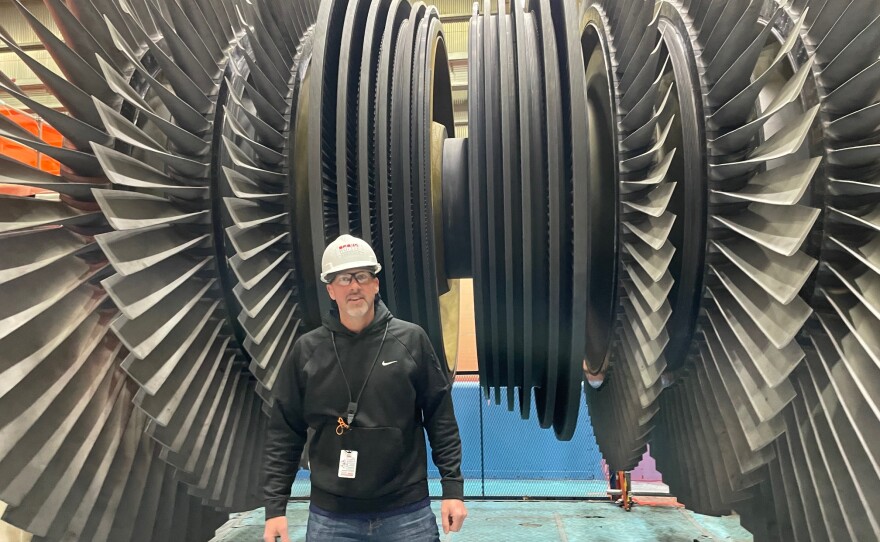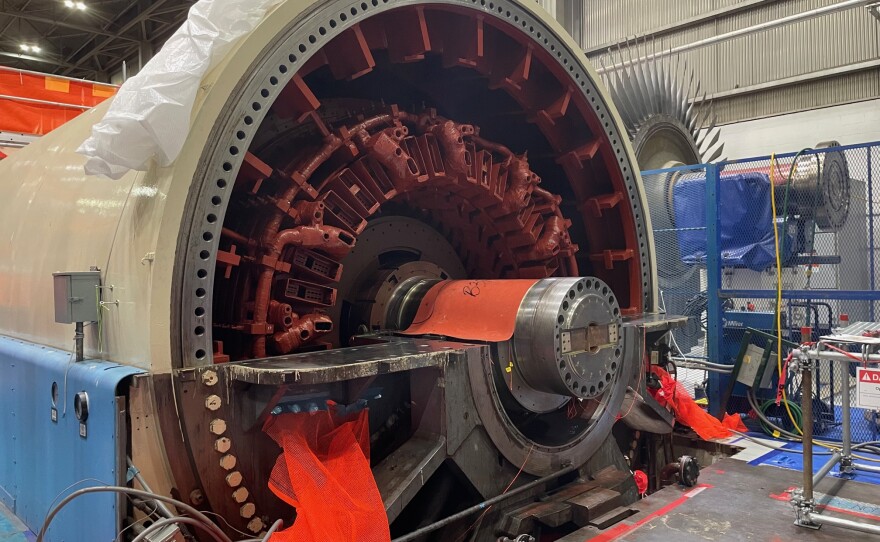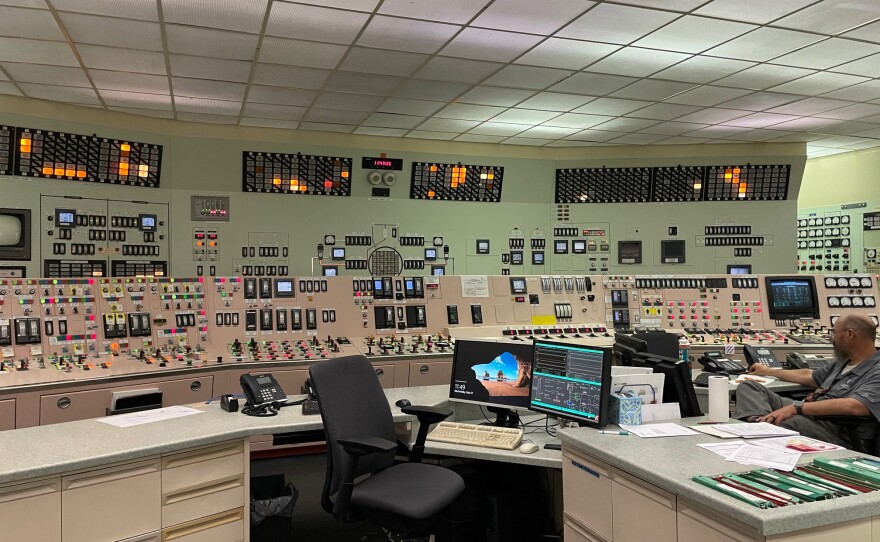Karen Davis remembers spending summers at Palisades Park, a lakeshore community in Southwest Michigan: sunbathing on the top of a dune when she was a teenager, swimming in the freshwater waves of Lake Michigan, down by the nuclear power plant on the beach next door.
“The big draw at this end of the park was the warm water,” Davis said on a recent rainy afternoon. “People would go swim in front of the power plant because that's where the warm water is being discharged.”
It was a different time.
After 9/11, swimming in front of the plant was no longer allowed. Now there are signs along the beach, and security in place.
Davis says she started paying more attention to the plant when she was older, and there were a series of safety issues. In 2003, she developed thyroid cancer. She says she didn’t think a lot about it at first.
Then, she says she heard from other cancer survivors about the link between thyroid cancer and radiation exposure.
“And that’s when the lightbulb went off in my head,” Davis said. “And I’m like, ‘Is it the power plant, could it have something to do with that next door?”
The state of Michigan said it looked into cancers at Palisades Park, near the nuclear plant, and found fewer than six cases from year-round residents, not enough to draw any conclusions. Davis says she’s in touch with other residents to be a part of a new study.
The link between living near a nuclear plant and thyroid cancer risk is not well-studied, according to a review of studies published in the journal Environmental Health last year. The review found some evidence to suggest there may be an increased risk of the cancer for those living near nuclear plants, but that there is still a need for more well-designed studies to examine the issue.
Six years ago, Karen Davis and her husband Bruce decided to move to Palisades Park permanently. They built their dream home on top of a dune, almost as close to the power plant as you can get.
So why move to the place that she believes gave her cancer?
“Because they were closing the plant,” Davis said. “They were closing the plant.”
They were, and they did. In 2022, the reactor shut down.
But then the plan changed. Holtec International, the company that bought the plant to decommission it, decided instead to try to do something that’s never been done before: bring a decommissioned nuclear plant back online.
Now Davis and her husband Bruce are among the most vocal opponents of the plan. They’ve spoken out at public meetings, sent in comments to the Nuclear Regulatory Commission, which is still considering whether to approve the plans to restart Palisades.
But just north of their home, hundreds of workers are busily trying to make those plans a reality.
“At first it seemed daunting,” said Neil Wharton, an engineer with Siemens Energy, one of the contractors hired to help inspect and repair a hulking turbine that now sits partially disassembled in a hanger-like building at Palisades. “But we got into a groove, and it's not to be confused with being complacent. At no point do we feel comfortable, but do feel confident and competent in the work that we're doing.”
Holtec’s goal is to have the plant back online, generating 800 megawatts of electricity - enough to power 800,000 homes - by the end of this year. Before that can happen, federal regulators at the Nuclear Regulatory Commission have to agree that Holtec’s plans will allow it to operate the plant safely.
Those plans faced a setback last year when an inspection found problems with more than a thousand tubes connected to the plant’s two steam generators.
Holtec says it is working to repair the tubes. The NRC is still reviewing the plans.
The U.S. Department of Energy is helping with a loan worth up to $1.52 billion. The loan guarantee was originally approved by the Biden administration, and has been continued by the Trump administration.
Nuclear power, it seems, is one of the few areas where the two administration’s agree.
Last month, Trump signed an executive order meant to streamline regulations around nuclear power, with the goal of quadrupling the amount of nuclear power generated in the U.S. by 2050.
“You can count on one hand the number of sites where you can actually go and do these restarts."Steve Comello, EFI Foundation
Restarting shuttered plants such as Palisades could play a role in those plans. But it may not play a major role.
“You can count on one hand the number of sites where you can actually go and do these restarts,” said Steve Commello of the EFI Foundation, a non-profit that supports low-carbon energy policies.
Besides Palisades, there is one more restart project in the works. Constellation Energy has announced plans to restart Three Mile Island’s Unit 1 reactor. It was not the reactor involved in the accident that occurred in 1979. But it was decommissioned in 2019. Now Microsoft has agreed to buy the power from the reactor for its data centers.
The Three Mile Island restart will follow a different regulatory process than the restart at Palisades. And not everyone who opposes the Palisades restart is against restarting other plants.
Karen Davis said the history of safety problems at Palisades, some of which date back nearly two decades, are still on her mind. A spokesman for Holtec acknowledged the record, but said improvements were made, and the plant operated safely until its decommissioning.
Davis still has her doubts.
“We are very for sustainable energy,” she said. “We have geothermal in this house. We drive electric cars. We’re not anti-nuclear power whatsoever. We’re against this power plant because of the safety record.”

